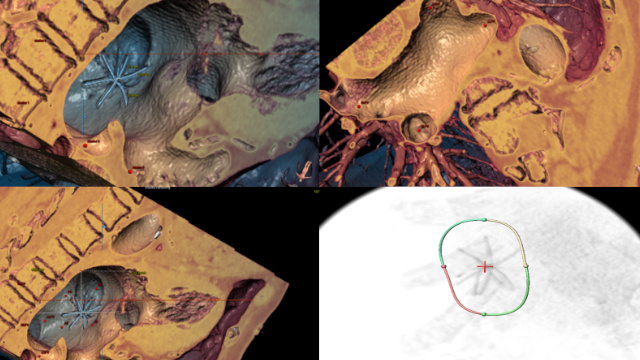3138 results for «628»
3138 results
Pre-emptive TAVI for asymptomatic severe aortic stenosis - From headlines to clinical practice
24 Nov 2024 – From PCR London Valves 2024
Is early TAVI the right choice for your asymptomatic patients with severe aortic stenosis? In this video, we break down the latest clinical trials, including EARLY TAVR and EVOLVED, to help you navigate the complex decision-making process.
Find out what these studies really tell us about the...
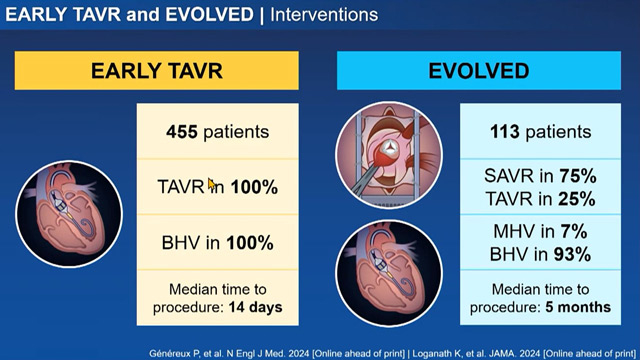
Rapid-fire - TAVI in aortic regurgitation
24 Nov 2024 – From PCR London Valves 2024
Prepare to be captivated by a rapid-fire session showcasing selected PCR London Valves 2024 clinical cases on TAVI in aortic regurgitation. Witness the first-in-man deployment of the Abbott Navitor Valve for left ventricular assist device-associated aortic regurgitation, as well as cases involving severe aortic regurgitation in...
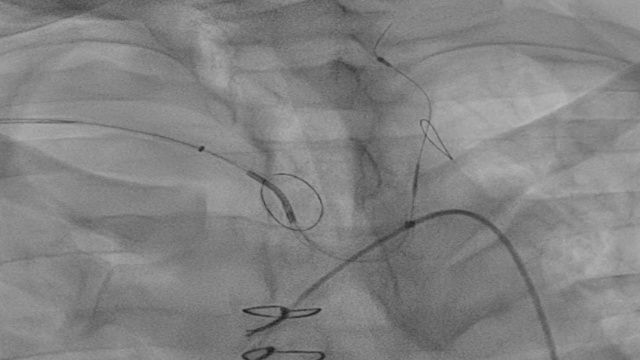
TAVI innovations: late-breaking trials from PCR London Valves 2024
24 Nov 2024 – From PCR London Valves 2024
What does the future hold for TAVI procedures? Don’t miss the latest innovations—watch this video now! It explores the Late-Breaking Trials from PCR London Valves 2024, featuring groundbreaking studies that could transform the way we approach TAVI in clinical practice.
You’ll dive into the CANNULATE TAVR EXTENDED...
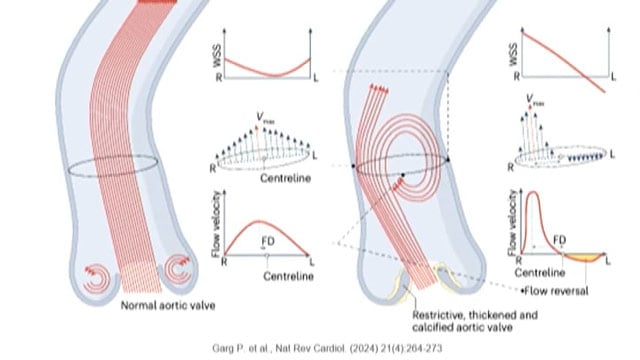
Featured cases - TAVI in bicuspid valve anatomy (Part 1)
24 Nov 2024 – From PCR London Valves 2024
Explore a unique collection of featured TAVI cases in bicuspid valve anatomy. Witness the successful navigation of complex scenarios, including the treatment of severely calcified bicuspid valves, handling of extreme annular dimensions, and the utilization of specialized techniques like antegrade transseptal TAVI. Gain insights that can...
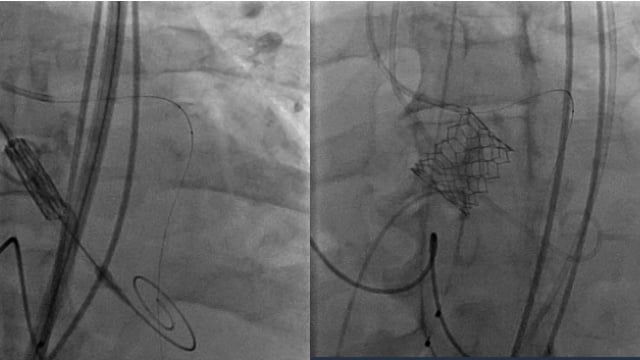
Insights from the top late-breaking trials at PCR London Valves 2024
24 Nov 2024 – From PCR London Valves 2024
Looking to stay ahead in transcatheter valve therapies? Don't miss out this video showcasing the most impactful late-breaking trials from PCR London Valves 2024.
Discover pivotal findings, including one-year results comparing two balloon-expandable TAVI valves, outcomes of the TRISCEND II trial for tricuspid regurgitation and groundbreaking insights...
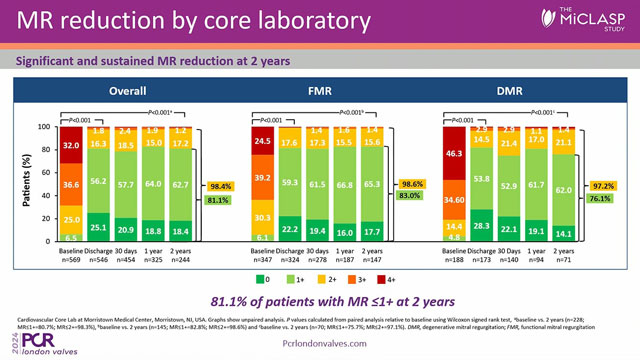
Featured cases - TAVI in SAVR (Part 1)
24 Nov 2024 – From PCR London Valves 2024
Delve into a collection of compelling TAVI cases involving prior surgical aortic valve replacement (SAVR). Witness the nuances of valve-in-valve TAVI, including the importance of pre-dilation and the challenges of uncrossable valves. Gain insights into managing severe aortic regurgitation in failed bio-Bentall procedures and navigating TAVI...
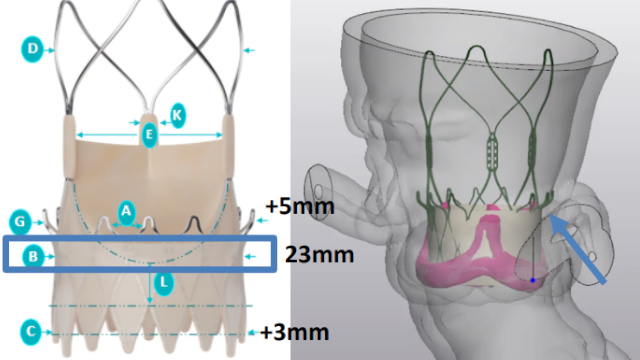
TAVI and coronary artery disease
24 Nov 2024 – From PCR London Valves 2024
How does coronary artery disease shape outcomes in TAVI patients, and when should revascularization come into play? This video explores these critical questions, offering a deep dive into the latest evidence and strategies for managing combined aortic stenosis and coronary artery disease.
From understanding revascularization timing to...
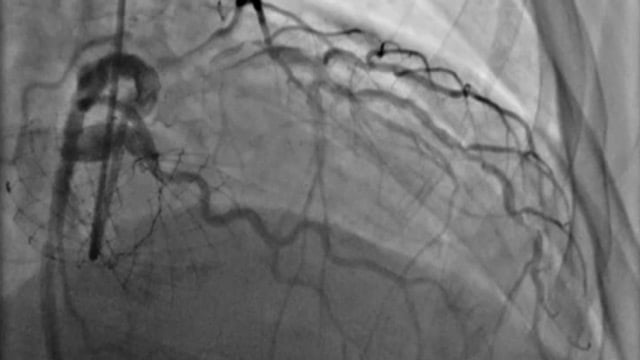
Featured cases - Complications of mitral TEER
24 Nov 2024 – From PCR London Valves 2024
Delve into a series of compelling cases highlighting complications associated with mitral transcatheter edge-to-edge repair (TEER) procedures. Witness the management of leaflet perforation, single leaflet detachment, and left atrial perforation. Explore innovative bailout strategies and the challenges posed by M-TEER. This session offers valuable lessons to...
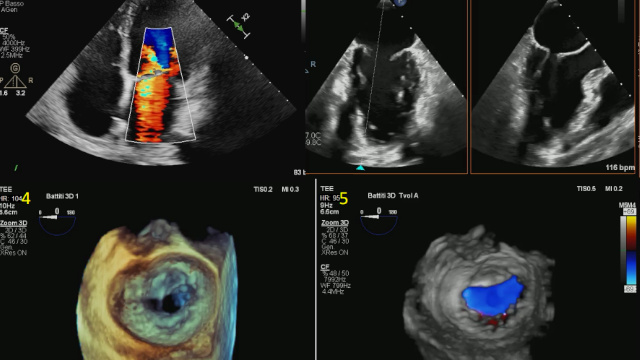
Tricuspid valve intervention - Current devices and future perspectives
24 Nov 2024 – From PCR London Valves 2024
Curious about how to tackle the challenges of tricuspid valve interventions? This video dives into the latest devices and strategies, showing you how to select the right approach for each patient.
Watch experienced practitioners treat real-world cases, from atrial functional regurgitation to large annulus gaps and complex...
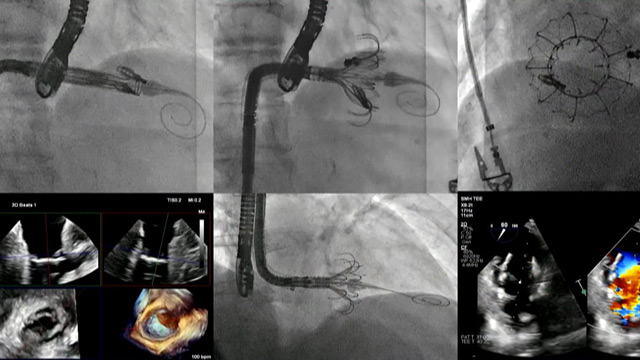
Rapid-Fire - Rare and unusual (Part 1)
24 Nov 2024 – From PCR London Valves 2024
Immerse yourself in a captivating collection of rare and unusual interventional cardiology cases. Witness the first known case of dual valve-in-valve replacement in caval valve implantation, the management of device-related allergic reactions, and the treatment of left atrial thrombi associated with appendage occlusion devices. Explore solutions...
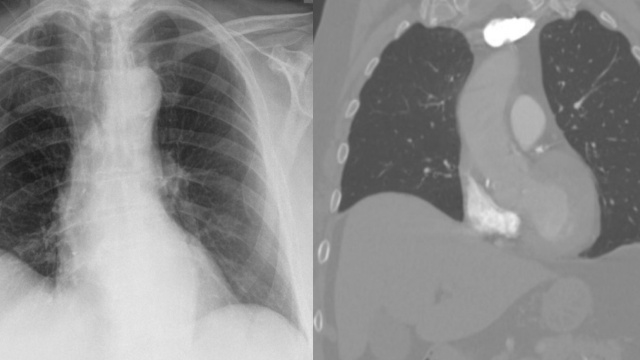
Featured research - Mitral valve (Part 1)
24 Nov 2024 – From PCR London Valves 2024
Explore the cutting edge of mitral valve research in this two-part featured research session. Dive into a diverse array of abstracts selected from the upcoming PCR London Valves 2024 conference, covering topics such as optimizing neo-left ventricular outflow tract area, addressing anatomical challenges in TMVR, the...
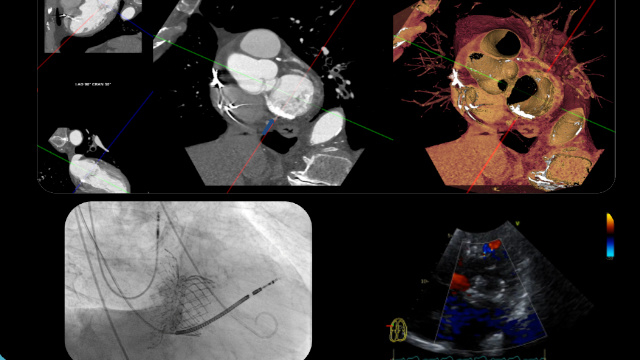
Featured cases - Valve-in-valve TAVI with balloon fracture
24 Nov 2024 – From PCR London Valves 2024
Delve into the world of complex valve-in-valve TAVI procedures in this featured cases session. Explore a diverse range of challenging cases, including valve fracture techniques, managing unexpanded valves, and overcoming the Achilles' heel of valve-in-valve TAVI. Learn from the experiences of expert clinicians as they navigate...
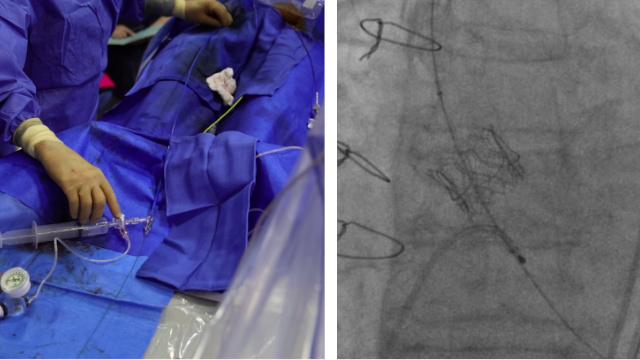
Featured research - Mitral valve (Part 2)
24 Nov 2024 – From PCR London Valves 2024
Dive deeper into the latest mitral valve research in this second part of the featured research session. Uncover insights from cutting-edge studies on the TEND-RING Tendyne mitral valve-in-ring registry, the feasibility and results of mitral valve clipping after failed surgical repair, outcomes of TEER for primary...
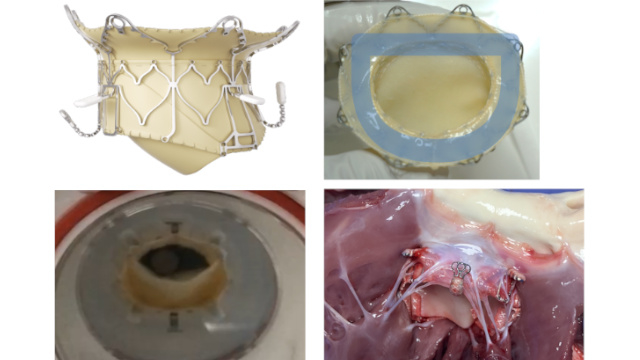
How to establish a mitral TEER programme
24 Nov 2024 – From PCR London Valves 2024
Ready to start your journey toward establishing a mitral TEER programme? This video covers everything you need to know—from understanding the contemporary role of TEER in managing mitral regurgitation to building a Heart Team and referral network.
Learn how to find your first cases, select the right...
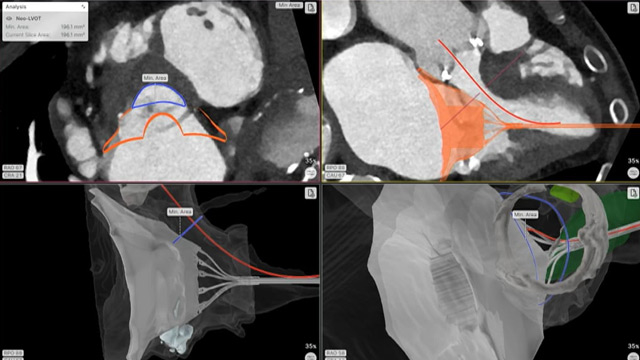
Featured cases - Challenging tricuspid interventions (Part 2)
24 Nov 2024 – From PCR London Valves 2024
Dive into this session showcasing a diverse array of challenging tricuspid interventions from the PCR London Valves 2024 Clinical Cases submissions. Discover complex cases involving TTVR in a transplanted heart, recurrent tricuspid regurgitation after T-TEER, and an extremely difficult tricuspid valve-in-valve implantation. Gain insights on navigating...
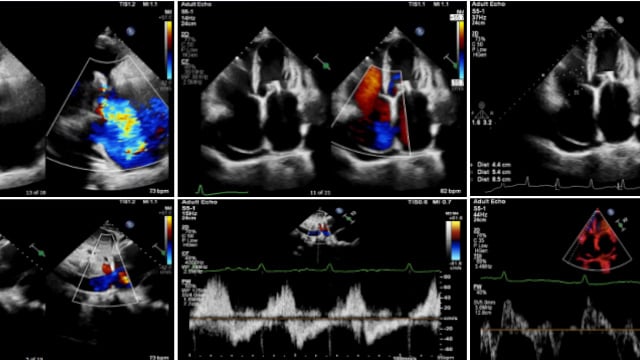
TAVI innovations: latest breakthroughs from PCR London Valves 2024
24 Nov 2024 – From PCR London Valves 2024
Curious about the latest advancements shaping the future of TAVI? Don't miss this video which deliver insights from the PCR London Valves 2024 Late-Breaking Trials, diving into key topics that matter most in clinical practice.
Explore 5-year outcomes of AVR in low-risk patients stratified by annulus size,...
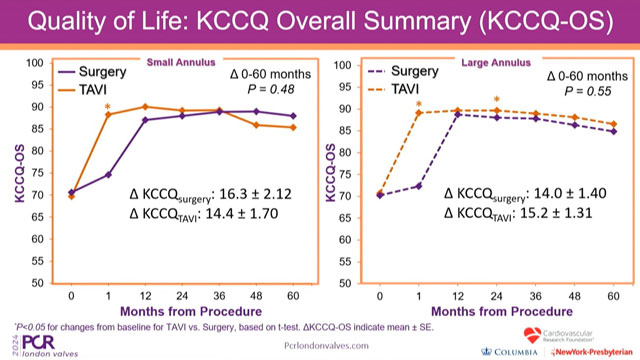
Featured research - Aortic valve (Part 3)
24 Nov 2024 – From PCR London Valves 2024
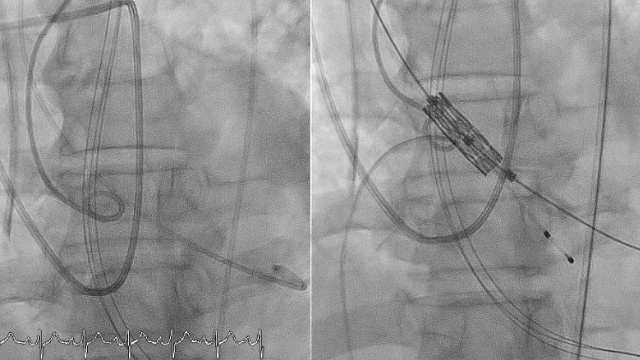
Featured cases - TAVI coronary complications
24 Nov 2024 – From PCR London Valves 2024
Delve into this session featuring selected PCR London Valves 2024 Clinical Cases submissions on TAVI coronary complications. Explore a case of post-TAVR acute pulmonary edema, an unusual inter-TAVI diastolic gradient, late coronary artery occlusion after TAVR-in-SAVR, acute coronary syndrome after TAVI due to subacute left main...
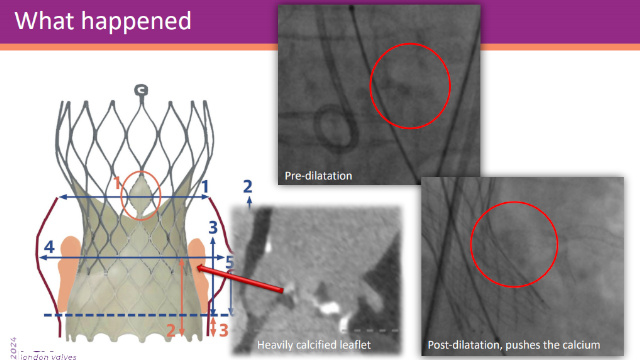
Featured cases - TAVI-in-TAVI (Part 1)
24 Nov 2024 – From PCR London Valves 2024
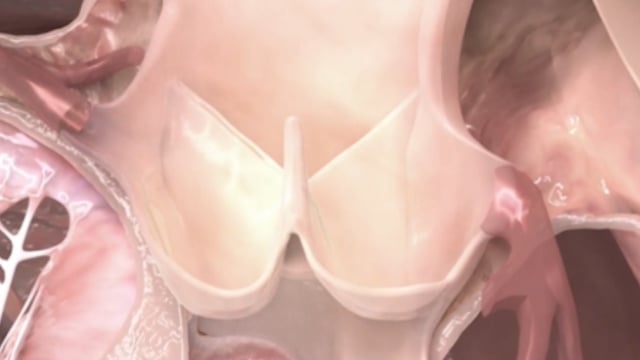
Featured cases - Atrial septal challenges during mitral TEER
24 Nov 2024 – From PCR London Valves 2024
Delve into this session showcasing selected PCR London Valves 2024 Clinical Cases submissions that highlight the complexities and challenges associated with atrial septal issues during mitral TEER procedures. Explore cases involving a bailout strategy to manage acute single leaflet detachment during Mitraclip, navigating a challenging transseptal...
